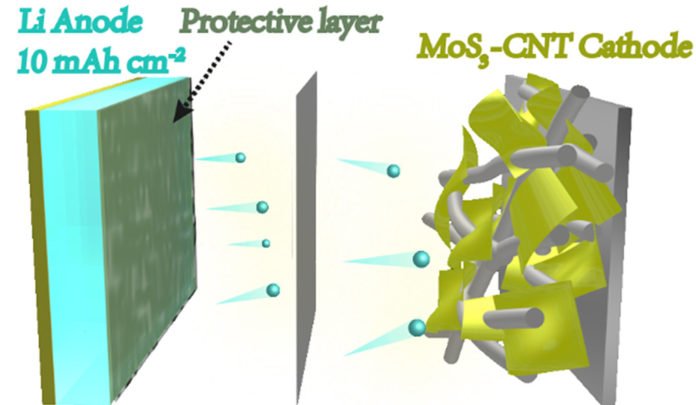Yale scientists along with Donghua University scientists, have demonstrated a new way to create lithium metal electrodes that optimizes the energy and capacity of rechargeable batteries. During experiments, the approach yields a protective layer that enables lithium metal anodes to be efficiently discharged and charged at high capacities.
Using this method, scientists also demonstrated a battery cell that beats other lab-scale battery cells, and in addition to cutting-edge lithium-ion batteries available.
The first author of the study, Qiuwei Shi, said, “We construct a Li-MoS3 full cell with the anode and cathode materials in a close-to-stoichiometric amount ratio. In terms of both capacity and energy, normalized to either the electrode area or the total mass of the electrode materials, our cell significantly outperforms other laboratory-scale battery cells as well as the state-of-the-art Li-ion batteries on the market.”
The study is published online in the journal PNAS.
